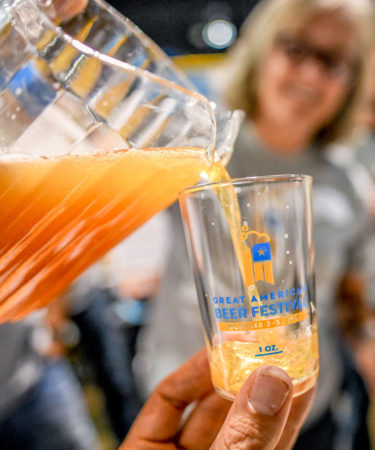Last weekend, more than 2,000 breweries and thousands of beer fans attended the 33rd Great American Beer Festival (GABF) in Denver. GABF is the “most prestigious professional beer competition in the country,” according to the Brewers Association, which organizes the festival. Some brewers, however, have issues with the craft beer competition.
“[I]f you’re not sending the FRESHEST beer possible out there from the East Coast, you have next to zero shot,” John Dantzler, CEO of Torch & Crown Brewing Company, based in NYC, told me on Twitter. “It’s as much a competition of proper packaging/shipping as it is about actual beer. Not a knock on the competition — you can’t send a judge to every tasting room in America — but [it] will lead to certain results.”
Dantzler and others believe the awards favor West Coast brewers, whose proximity to the Denver festival arguably puts them at an advantage compared to those shipping beer from across the country. Challenges of doing so include time, temperature, and cost.
Even the thousands of breweries that do compete equate to less than half of the country’s 7,000-plus breweries, and fewer than 300 breweries actually take home medals. It’s an understandably risky endeavor, and for small or up-and-coming brands like Torch & Crown, the risk might not be worth the potential reward.
Of course, the breweries that do win — 283 brewers were awarded 318 medals this year — have legitimate bragging rights. Smaller brands or breweries, particularly those in smaller cities or towns, can earn recognition that serves as a draw for locals and tourists to visit their taprooms. (It can be especially impressive when a brewery wins several medals, like Austin Beer Garden Brewing Co., which racked up seven medals, six of them golds, between 2015 and 2018.)
Other issues in recent years have spanned sponsorship (should Jameson, one of the largest spirits brands in the world, be a sponsor of GABF, when large brewing companies are forbidden?) to popularity contests (how come New England breweries aren’t winning for their New England-Style IPAs?).
It’s tough for a single annual festival to fit the needs of the country’s nearly 7,500 breweries. In the end, it’s all about recognizing talent in the industry, which is a worthy, if weighted, endeavor.
Corona and Others Enter Hard Seltzer Bubble
Corona’s hard seltzer is coming to a store near you in spring 2020, according to a recent announcement from Constellation Brands. Similar to the many spiked seltzer brands that came before it, the new label has 90 calories, no sugars or carbs, low ABV, and will be available in four fruit flavors: tropical lime, mango, cherry, and blackberry lime, BeverageDaily.com reports.
Also announced last week is the release of Short’s Brewing subsidiary Superfluid Supply Company’s Beaches Tropical Hard Seltzer, and Crook & Marker’s spiked and sparkling soda. And on Wednesday, Omission Brewing Co. launched its line of all-natural hard seltzers, a spokesperson tells VinePair at press time.
My take? Spiked seltzer isn’t going anywhere any time soon.
